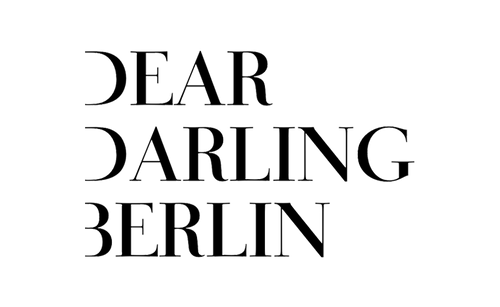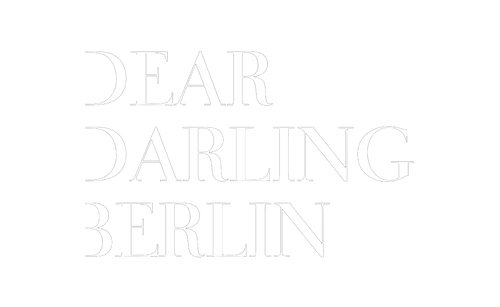1. Dear Anastasia, I'm so happy to introduce you and FeMentor as part of our Female Founder Community. Please tell us a little about yourself and your company.
Over the past five years, I've had the pleasure of answering this question many times, so let's start with the basics: I'm one of Germany's youngest founders. At 20, I founded FeMentor, the first reverse mentoring platform in Europe. FeMentor now operates globally. At 23, I was finally able to complete the bucket list I'd started at 14. I founded a startup, gave a TEDx talk, wrote a book (Founded - Startup Scene Uncovered), and finally baked a Black Forest cherry cake using my grandmother's recipe (that was probably the hardest part, that darned sponge base). I'm quite active on Instagram and LinkedIn, sharing my life.
What some people probably don't know about me is that I've never drunk alcohol in my life, that I'm a native Berliner, and that I enjoyed baking even before the pandemic (not just banana bread).

2. With FeMentor you founded the first reverse mentoring platform in Europe - what was your motivation and how does the concept work in contrast to other mentoring programs?
In my opinion, reverse mentoring is the most efficient method for growth, building self-confidence, and accelerating personal and professional development. In traditional mentoring, the mentor is older and passes on their experience to a younger person. In reverse mentoring, both individuals meet as equals and teach each other. Of course, the more experienced woman has the advantage in terms of network and knowledge, but understanding that a younger generation is also knowledgeable is part of the process. Especially today, it's important to build connections and bridges between generations so that we can also bring older generations into a more digital world. My mother, for example, is 60 years old, active on Instagram, and was a co-advertising face of Snapchat with me. In the film "Mean Girls," there's a scene where the mother comes into the room and says, "I'm not a regular mom. I'm a cool mom." That describes my mother quite well, because she allowed me to be a reverse mentor to her from an early age. That's also where my motivation for creating access to female mentors came from.
To ensure that every woman (and every person who identifies as a woman) can have a (reverse) mentor at FeMentor, the entire program is free. The next question that usually comes up is: how do you finance yourselves?
I sometimes find this unfortunate, as it occasionally gives me the feeling that what costs nothing is worth nothing. But don't worry: there are no hidden costs with us; we collaborate with companies and universities. We also plan to continue to value the knowledge of our community as our currency. However, we differentiate ourselves not only through reverse mentoring and the free component, but also through our diverse participants. At FeMentor, we have age diversity, cultural diversity, and also different financial backgrounds, ranging from heiresses to women who fled to Germany with nothing but a small bag.

3. What was the most valuable tip you ever received from a mentor?
To be honest, I take something away from every mentor in the FeMentor network. I'm like a sponge, soaking everything up and listening. That's probably one of the most valuable pieces of advice I've received: listen. We're so busy talking about ourselves, pushing our agenda, and being part of something that we sometimes only give output and aren't open to input anymore. Another method I find helpful is to always ask myself when faced with a problem: will I still be thinking about this in five years, or am I just angry/hurt right now? This has already solved several professional and personal problems. (God, I sound totally Zen, but I'm not! Sometimes I even yell at drivers in 30 km/h zones when they're speeding, especially if there's a school nearby.) 
4. As one of Germany's youngest founders, a journalist, and a social media creator: do you encounter prejudices or stereotypes in your everyday life as an entrepreneur? If so, how do you deal with them?
I think one of the biggest hurdles as a female founder is that you're always asked about your secrets. Men, or rather, male founders, are often asked: what was your secret to success? And as a female founder, you're asked: what were the problems along the way? I much prefer to share my successes to show other young women that it's possible. For example, anyone who looks at my Instagram account will see that I still have vacation photos online that I posted when I was 17 or 18. Back then, I was in a bikini, posing, on some beach. Just recently, I had a conversation with a mentor who said about this: "You're creating a stir in the startup/business world. You catch yourself being surprised that you can be successful and smart with long legs and sexy Instagram posts." But that's exactly why I leave these pictures online, because that's what I lacked back then. There wasn't a single young female founder who acted, dressed, and posted in a way that was appropriate for her age. I don't like business suits, even if they're colorful. I prefer wearing dresses and skirts that don't go past the knee, and sometimes even show my midriff. Funnily enough, I get a lot of messages from women of all ages thanking me because they feel the same way – they want to embrace their femininity while still being taken seriously as female founders and businesswomen.
What I wear says nothing about how qualified I am. My knowledge is within me, not on me.

5. You lead by example and show how women can support each other as equals. What constitutes good leadership for you?
In my opinion, several factors are relevant, but it starts with not becoming arrogant. Pride comes before a fall, and there are plenty of documentaries and films that show that those who reach the top also fall hard.
Here are some points I implement for positive leadership:
- Ask for help and understand that you can't (and shouldn't) be an expert in every field.
- No arrogance, as mentioned above.
- Take the knowledge and advice of others seriously
- Give something back when someone helps you and offer something in return (thank you coffee, connecting you with a contact, sharing a post about it on Instagram/LinkedIn)
- Don't be resistant to advice; even if you're a managing director, you should listen to the intern just as much as the senior partner.
- Stay open and curious
- Don't just look upwards, but sometimes also look back to where you came from and what you have already achieved.
- Accept inspiration, no matter who it comes from. It doesn't have to be implemented immediately, but it keeps you creative.

6. Networking is one of the most important tasks – not just in entrepreneurship. Those with a strong network can benefit in many ways and support others. However, many of us find it difficult to take the first step. What are your top 3 tips for successful networking?
1. Open up your network to allow it to grow.
I've often noticed that some people are afraid to share their contacts, worried they'll be "stolen." This is completely misguided. The more you network and open up your network, the more you'll connect with others, meet new people, and easily expand your network.
2. Go to an event alone and talk to people in cafes/restaurants.
I've always gone to events because my mom (a PR professional) always took me along. She usually had to work there, which meant I was the one approaching people and chatting with all sorts of people. Marius Müller-Westernhagen even had to be my interpreter once because my English wasn't very good back then. Even today, I prefer going to events alone because it "forces" me to strike up conversations, even if it makes me a little uncomfortable at first. Be brave and talk to new people!
3. Increase your visibility. This will create new networks that you might not have even considered.
Just a few months ago, I was spontaneously invited to a birthday weekend in Berlin. I arrived at the room for the private dinner, where 10 people were seated. I knew three of them. One person had invited me—the birthday person—and the third looked incredibly familiar, but I couldn't place him at first until it dawned on me: it was Elon Musk! If someone had told me just a few days earlier that I would be sitting next to Elon Musk at a private dinner and that he would hug me goodbye, I would have just laughed. Meeting him was never something I had planned, nor am I a huge fan, but it was definitely the surprise of the year. Through my online presence, I keep myself in the public eye within my network without having to constantly send messages. And it's exactly these kinds of things that can lead to birthday invitations like this.
____________________________
MORE INFO
If you'd like to learn more about Anastasia and FeMentor, feel free to check it out here:
Visit the website: fementor.de
Go to Instagram: @ fementorin

